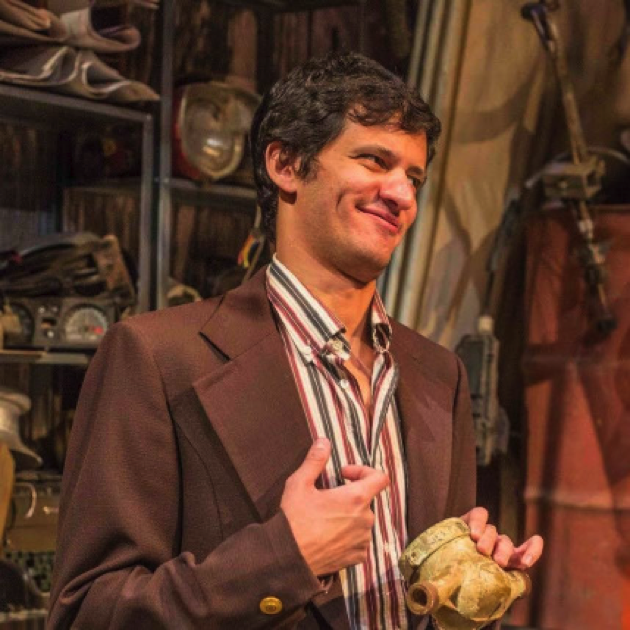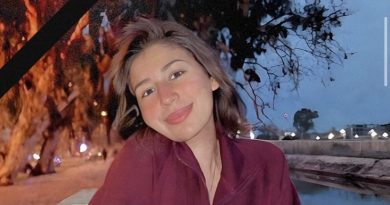Day 143: Conversations with Abdelhamid
Day 143: August 16, 2020
Global Cases: 21, 818, 175; Deaths: 772, 753
Egypt Cases: 96, 475; Deaths: 5, 160
Fatma Fahmy
Anthropology Alumna
Yesterday, I walked with my best friend in an enclave of asymmetrical mountains and with our heads up to see the stars. Our heads in the stars, between constellations, too far gone to pay mind to the unreliable and jagged walkway before us.
We took a twenty-minute walk in forty-five minutes. It was a moment that stood in sharp contrast to how I spent my last four months, consistently looking for clues of what is to come next.
It felt like it was yesterday, that our group of friends sat in a corner of a coffee shop in Zamalek, joking that we will never see each other again, not knowing that we really would not see each other for a while that would turn a month into the simple and over-dramatic unit of forever.
In four months, I revisited every person I had been in the past 21 years.
I lay in bed with my six-year-old self, who was overly confident and sure that she would take over the world one day. Leaned out the window with my fourteen-year-old self who did not want to let the memory of her grandfather slip between the crevices of her restless mind.
And then again, with my eighteen-year-old self who did not care if tomorrow made an appearance, just that the next second would be spent in absolute elation.
I asked them about my sisters, mother, father, and grandparents, even my cousins. Having to spend so much time with them, I found that I missed them dearly.
The past four years, from every morning to the next, I have been trying to find myself, squeezing myself between strangers, under restaurant tables, on floral couches that I will never see again, in nightclub bathrooms.
I left every rock unturned, except for the past, except in my family, who moved across continents with me. They have seen me stubbornly try to conceal my desperate attempts to claim ownership of the future, just as they witnessed my first encounters with the world, encounters that I myself would not remember.
I only came to this realization because I was thrust in the world of my nephew. In small moments between his dinner and bath time, I found exactly what I was looking for. A human being experiencing untainted emotions.
Maybe it is true that the less you know, the better.
Abdelhamid knows exactly five things about this world. The first is that cars are called ‘arabeya, he stretches every “e” into oblivion. The second is that everything that has a wheel is a ‘arabeya’.
However, I think I should take the time to explain the nuance of his thought process. If he sees a bicycle, it is a ‘arabeya’, with exactly four syllables.
On the other hand, an actual car is in absolute terms a ‘arabeya’, and so it transforms into five syllables.
What I am trying to say is that I have learned so much from a human being who has spent exactly a year-and-a-half on this earth. I have learned that if you do not play close attention, the meaning you are looking for could be lost. And you will spend the rest of your life thinking Abdelhamid is a simple child who thinks anything that has wheels is a ‘arabeya’.
He decided, of his accord, on this meaning, and everyone has come to wholly respect his decision.
The third thing he knows is that his family loves him very much.
The fourth thing is that his mother is called “Amira”, to be pronounced “Amima”.
The fifth thing is that “bye” is always a lot of fun.
“Then practice losing farther, losing faster:
places, and names, and where it was you meant
to travel. None of these will bring disaster.” – One Art, Elizabeth Bishop
The thing is, I am absolutely terrified. I am so wretchedly afraid that if it had not been for quarantine I would have found myself continuing my fruitless search in pointless places.
Had there been no quarantine, the time spent with Abdelhamid would not have been the same; that the subtle distinctions in what he does, which make a world of a difference in understanding him and how he sees the world, would be lost on me.
We always think that we want the world to love us exactly as who we are now. After meeting myself over and over again, between four walls, for four months, never looking up at anything but the ceiling, I realized that I wanted to be loved for everything that I had been, and the crushing realization that not everyone will know everything that I had been, except for my family.
More than that, I started to understand feelings I never confronted before. I finally understood the lingering sadness when seeing my aunts and uncle. It was the devastation of not being seen as a child anymore. I realized the rareness of seeing the glimmer in their eyes that resides permanently within me on account of Abdelhamid.
I feel uneasy sometimes, that when he grows up he will see his mother as just that, his mother. He won’t see my fearless sister, polished and clean now; he will not see her at fifteen, fiery and fearless just as she is now.
Long, wild, golden-maned in washed down jeans, wristbands intently snaking around her forearm.
She reflected an unparalleled boldness, unstoppable-ness, one that protected me from mean boys and slithering snickers.
He won’t know that I stood tall and strong on playgrounds because of her, head and chin up until my bones stuck that way. He won’t know that I was deathly scared of the dark.
It could have been because she was too lazy to make the 100-meter trip to my mother’s room from ours, but she held mine and my sister’s hands, looked us in the eye, and said “There is nothing to be afraid of, you are stronger than anything in the dark”.
My sister and I were still skeptical, so she told us that all we need to do is march with purpose across the hallway, chanting “Ana Kaweya, ana shoga3a, ana mab5fsh men ay had (I am strong, I am brave, I fear no one)”. She said that surely, if a thief or a monster were to hear us , they would run away in fear. Nothing is more scary than a girl who believes in herself.
I want to tell him that I believe in myself because Amira believes in me. That I was walking down a dark hallway at 21, and found myself without any warning chanting under my breath “Ana kaweya, ana shoga3a, ana mab5fsh men ay had”.
Will he know that he held his mother’s phone conversing with my grandmother with exactly a 12-word vocabulary?
Teta had also been fearless all her life. That was exactly what allowed hope to slither its way around my heart, when she tested positive for COVID-19.
I had faith in how stubborn she was, it was that same stubbornness that got my mother through chemotherapy. It was that stubbornness that made me keep self-quarantining even if it felt like I was the only one still doing so .
It was her perseverance that allowed her to say “I can’t believe they call this a virus” despite bleeding, despite breathing with difficulty, despite it all.
When Lilly, my friend, asked me to write this diary, I said yes. Then I ran away from the task for months, scared that writing well sometimes, getting the praise of people, was just plain old good luck.
I was terrified that my seeming competence was just luck.
I remembered my professor telling me that I cannot just rely on spontaneous inspiration to write well. That writing competently meant writing when you had to, not just when you wanted to.
So I took it as a sign when Amina, my best friend, asked me to do this. I am not divinely inspired, but I am utterly human. A person who experienced much of the same thing as millions of people around the world.
It took four months between four walls just so I could look up. My head in the stars.



